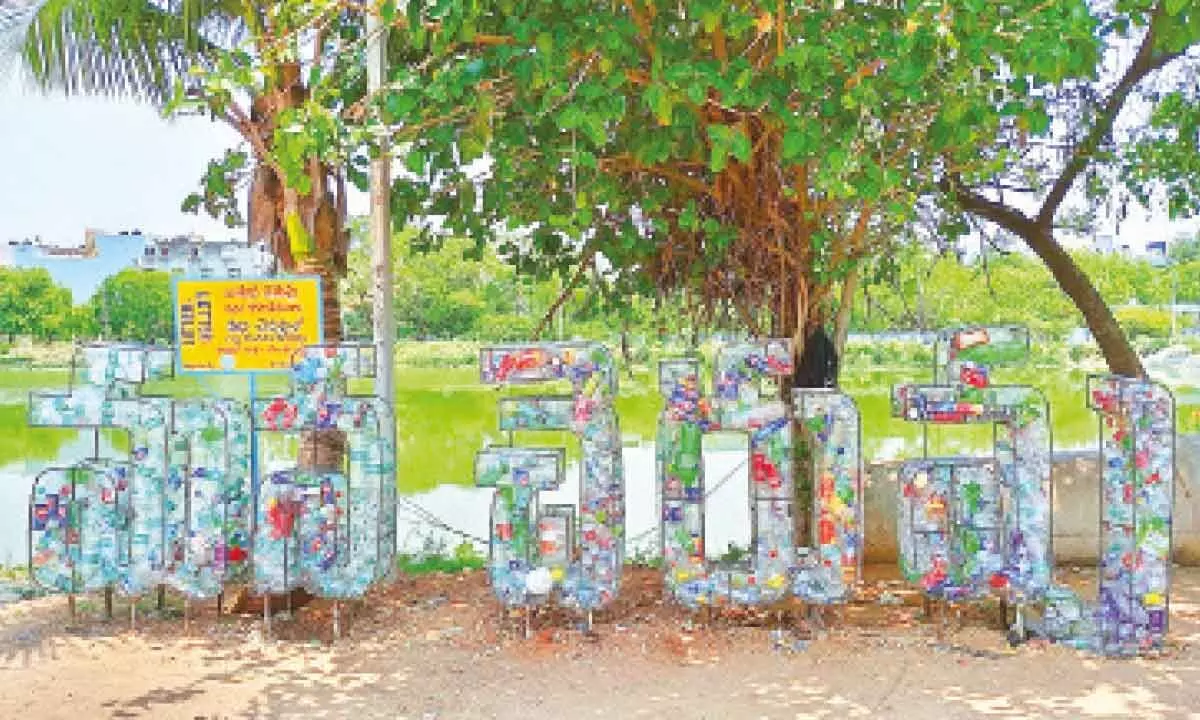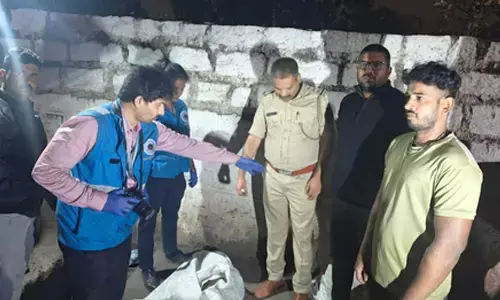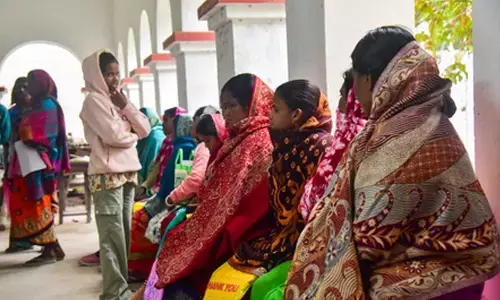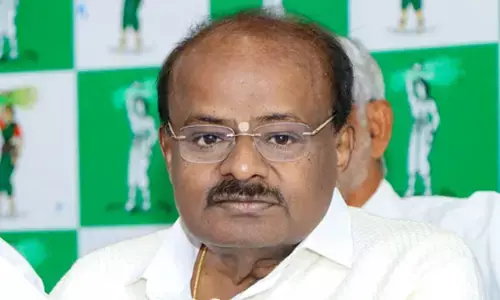World Environment Day-2023: City greens pitch for fight against plastic pollution

- Plastic pollution persists despite bans, requiring stronger enforcement and awareness campaigns
- NGOs actively engage in removing plastic waste from lakes and promoting recycling
- State government explores setting up additional recycling units to combat plastic pollution
Hyderabad: On the occasion of World Environment Day, environmentalists and social activists emphasise the urgent need to eradicate plastic and combat plastic pollution in the city. While acknowledging the efforts of the State government in addressing the issue, they express concern over the continued presence of plastic bottles discarded on roadsides and polythene bags clogging drains, indicating a lack of proper waste segregation. In light of this, environmentalists urge the government to enhance awareness campaigns and establish additional recycling facilities to tackle the problem effectively.
According to data from the Telangana Pollution Control Board, Hyderabad produces a staggering 450 to 500 tonnes of plastic on a daily basis. Despite the ban on plastic bags with thicknesses below 50 microns in the city, the effectiveness of the ban has been limited as these bags continue to be available. Imposing fines alone is not sufficient to address the issue; there is a need for strict action to be taken against violators. One of the major factors contributing to the failure of the ban is the thriving plastic industry. Environmentalists also highlight that the affordability, easy accessibility, low manufacturing costs, and durability of plastic bags are key reasons for the ban’s ineffectiveness.
Abhishek, solid waste management volunteer said, “I believe that the proper segregation of waste is lacking, and the State government has not streamlined the process effectively. This could be attributed to the limited availability of data on how residents are managing plastic waste. To ensure that waste is segregated properly, it would be beneficial for the government to introduce initiatives that incentivise residents. For example, offering rewards such as adjustments in electricity or water bills in exchange for providing dry waste would encourage consumer participation. Such initiatives would not only engage residents but also assist the government in effectively segregating waste in a more productive manner.”
Manoj Vidiyala, Co-founder of Dha3RNGO, said “Despite the ban on plastic bags with thicknesses below 50 microns in India, the availability of single-use plastic is still prevalent in the market. It's not just limited to plastic bags, but PET bottles and food wrappers also contribute to pollution. The primary reason for this continued presence is the lack of awareness among people. Even if individuals are aware, they often find alternatives to be more expensive, making it challenging to switch to sustainable options. It is the responsibility of the government to halt the production of single-use plastic, but unfortunately, plastic industries continue to thrive. While some NGOs conduct awareness campaigns, their reach is limited, and it is crucial for the state government to take the lead in spreading awareness to a larger audience. However, the success of such initiatives relies on the active participation of the broader community. Pollution affects every household, and it is important for citizens to understand both the disadvantages and advantages of plastic.”
Stretching on State government should come with various initiatives, MadhulikaChoudary, environmentalist and founder of Dhruvansh, said, “Removing plastic from lakes poses a significant challenge, but some NGOs have taken initiatives to address this issue. For instance, the introduction of floating bikes in Neknampur lake and the collection of milk packets and gunny bags for plantation purposes are notable efforts. To further tackle the problem, the state government should establish recycling units within the city, as currently, there is only one located in Medchal. Another crucial aspect is the need for proper waste segregation. If the State government emphasises the importance of vermicompost, it will contribute to the elimination of plastic waste effectively.”
















